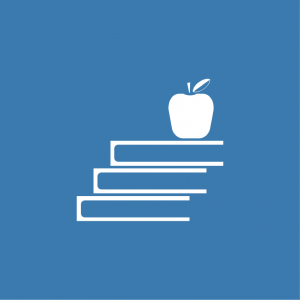Big Ideas is a year-long accelerator for mission-driven ventures, providing training, networks and funding to interdisciplinary teams of UC Berkeley students who have innovative solutions to pressing social challenges and real-world problems.

Scored on innovation, social impact, and feasibility, 13 UC Berkeley student-led teams were invited to advance to the final round of the 20th Annual Rudd Family Foundation Big Ideas Contest. They will now attend workshops and be mentored by experts to help them vie for the 20K grand prize.

A new initiative will bring together students to develop solutions the city's most pressing issues.

The team behind a mobile and affordable solar-powered irrigation system earned the 2025 Big Ideas Grand prize.

Revolutionizing how the Deaf and hard-of-hearing community understands the world.

Meet the team that taught film making in prisons
The Civic Innovation Challenge (CIC) pairs UC Berkeley students with City of Berkeley partners to co-design solutions that matter. A high-energy 7-day innovation sprint the CIC culminates in pitches to Berkeley leaders with awards (up to $4K per winning team).
Big Ideas encourages students to propose innovative solutions across a broad range of social impact tracks.
 This category challenges students to develop solutions to assist those who will be adversely affected and displaced by advancements in technology, automation, and artificial intelligence. To this end, students will be required to think about the issue critically and understand the exact nature of jobs that will be displaced. The matter at hand is to help these workers regain not only their lost income but also their purpose and direction in life.
Learn More About Workforce Development
This category challenges students to develop solutions to assist those who will be adversely affected and displaced by advancements in technology, automation, and artificial intelligence. To this end, students will be required to think about the issue critically and understand the exact nature of jobs that will be displaced. The matter at hand is to help these workers regain not only their lost income but also their purpose and direction in life.
Learn More About Workforce Development The challenge for this track is to describe an intervention that would alleviate a global health concern, either domestically or internationally. Proposals submitted to this track should (a) demonstrate evidence of a widespread health concern faced by resource-constrained populations, and (b) develop a system, program, or technology that is culturally appropriate within the target communities and designed for low-resource settings.
The challenge for this track is to describe an intervention that would alleviate a global health concern, either domestically or internationally. Proposals submitted to this track should (a) demonstrate evidence of a widespread health concern faced by resource-constrained populations, and (b) develop a system, program, or technology that is culturally appropriate within the target communities and designed for low-resource settings.
 The challenge for this track is to encourage the development of innovative solutions or approaches that address complex challenges in food systems and agricultural development. Proposals submitted to this track may focus on areas such as enhancing agricultural production, increasing food security, promoting sustainable farming practices, and/or creating equitable access to nutritious food. Proposals may be aimed at campus-based programs, local/domestic issues, or international efforts.
The challenge for this track is to encourage the development of innovative solutions or approaches that address complex challenges in food systems and agricultural development. Proposals submitted to this track may focus on areas such as enhancing agricultural production, increasing food security, promoting sustainable farming practices, and/or creating equitable access to nutritious food. Proposals may be aimed at campus-based programs, local/domestic issues, or international efforts.
 The challenge for this track is to propose novel products, services, tools or mechanisms that either address unmet needs of the financially underserved, or help extend existing services to populations at the unbanked “last mile.”
The challenge for this track is to propose novel products, services, tools or mechanisms that either address unmet needs of the financially underserved, or help extend existing services to populations at the unbanked “last mile.”
 The challenge for this track is to encourage the adoption of clean energy and/or resource alternatives that are sustainable and have the potential for broad impact. Proposals may focus on the design, development or delivery of green energy solutions that can be domestic or international in scope. All proposals should clearly demonstrate the relationship between the proposed intervention and its impact on the environment and/or the target impacted Californian community.
The challenge for this track is to encourage the adoption of clean energy and/or resource alternatives that are sustainable and have the potential for broad impact. Proposals may focus on the design, development or delivery of green energy solutions that can be domestic or international in scope. All proposals should clearly demonstrate the relationship between the proposed intervention and its impact on the environment and/or the target impacted Californian community.
 The challenge for this track is to create innovative solutions that address the underlying barriers to quality education and literacy. Proposals may focus on the design, development or delivery of education and literacy solutions that can be domestic or international in scope. All proposals should clearly demonstrate the relationship between the proposed intervention and its impact on education and literacy.
The challenge for this track is to create innovative solutions that address the underlying barriers to quality education and literacy. Proposals may focus on the design, development or delivery of education and literacy solutions that can be domestic or international in scope. All proposals should clearly demonstrate the relationship between the proposed intervention and its impact on education and literacy.
![]() The challenge for this track is to describe a novel solution to engage and enhance the wellbeing of communities, campuses, and cities. These innovations should stimulate new thinking to address key physical, social, or economic challenges facing geographic locales ranging from university settings to global metropolises. Solutions may focus on a wide range of areas, including but not limited to: improving the living conditions of urban environments, promoting civic engagement, sharing knowledge and information, making transportation options more accessible, and empowering individuals to improve their own well-being.
The challenge for this track is to describe a novel solution to engage and enhance the wellbeing of communities, campuses, and cities. These innovations should stimulate new thinking to address key physical, social, or economic challenges facing geographic locales ranging from university settings to global metropolises. Solutions may focus on a wide range of areas, including but not limited to: improving the living conditions of urban environments, promoting civic engagement, sharing knowledge and information, making transportation options more accessible, and empowering individuals to improve their own well-being.
 The challenge for this track is to develop an innovative art project that meaningfully engages with issues of advocacy, justice, and community-building. The initiative may use any art form — visual/ conceptual art, photography, new media, video, dance, theater/performance art, music, creative writing, or other forms. Art must be central to the project, and the proposal must reflect an informed understanding of the particular art form(s) being used, as well as of the communities being served.
The challenge for this track is to develop an innovative art project that meaningfully engages with issues of advocacy, justice, and community-building. The initiative may use any art form — visual/ conceptual art, photography, new media, video, dance, theater/performance art, music, creative writing, or other forms. Art must be central to the project, and the proposal must reflect an informed understanding of the particular art form(s) being used, as well as of the communities being served.
Teams are required to produce the following documents:
Teams will be judged on the following criteria: